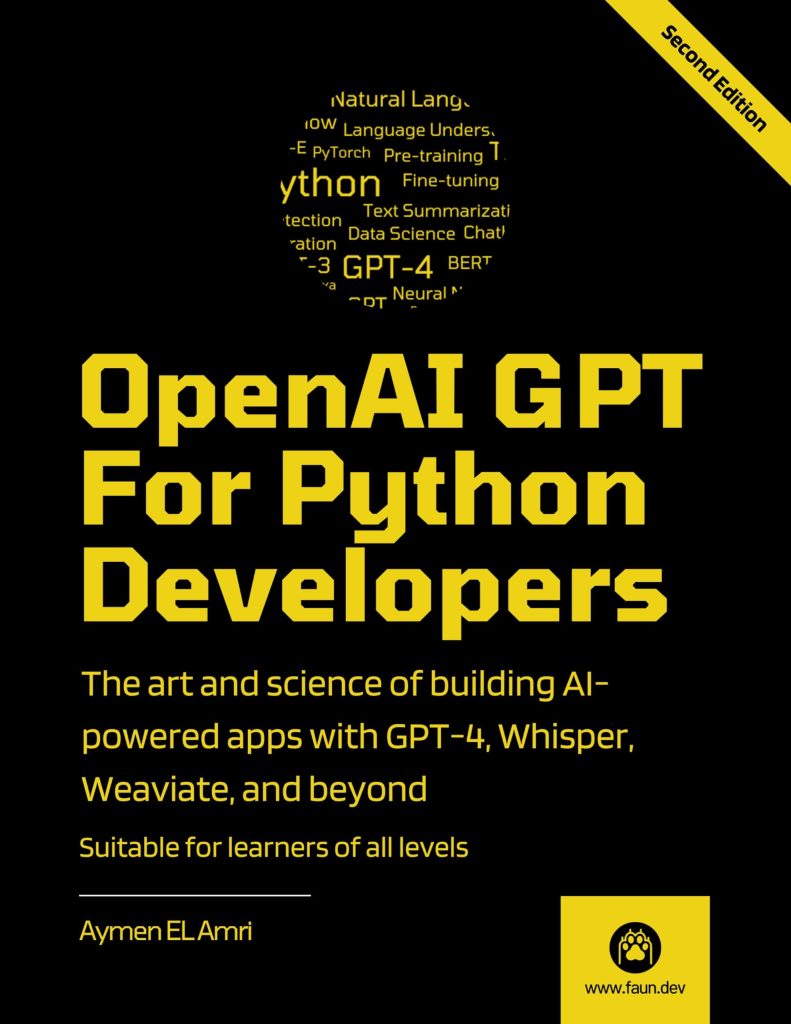SQLAlchemy Mixins are a powerful feature that allows developers to create reusable model components, enhancing code organization and reducing duplication. These mixins are Python classes that encapsulate common attributes, methods, or behaviors that can be shared across multiple SQLAlchemy models.
The main advantages of using SQLAlchemy Mixins include:
- Mixins allow you to define common functionality once and reuse it across multiple models.
- You can break down complex models into smaller, more manageable components.
- Mixins can be combined and customized to suit specific model requirements.
- By centralizing common code, updates and bug fixes become easier to manage.
To implement a mixin in SQLAlchemy, you create a class that defines the shared attributes or methods. This class can then be inherited by your model classes. Here’s a simple example of a mixin that adds timestamp functionality to a model:
from sqlalchemy import Column, DateTime
from sqlalchemy.sql import func
class TimestampMixin:
created_at = Column(DateTime, server_default=func.now())
updated_at = Column(DateTime, onupdate=func.now())
class User(TimestampMixin, Base):
__tablename__ = 'users'
id = Column(Integer, primary_key=True)
username = Column(String(50), unique=True, nullable=False)
In this example, the TimestampMixin class defines two columns: created_at and updated_at. The User model inherits from this mixin, automatically gaining these timestamp columns without having to redefine them.
SQLAlchemy Mixins can be used to add various types of functionality to your models, such as:
- Soft delete capabilities
- Audit trails
- Serialization methods
- Validation logic
- Caching behaviors
It is important to note that while mixins offer great flexibility, they should be used judiciously to avoid creating overly complex class hierarchies. When designing mixins, focus on creating small, focused components that address specific concerns rather than trying to include too much functionality in a single mixin.
By using SQLAlchemy Mixins effectively, you can create more maintainable and DRY (Don’t Repeat Yourself) database models, leading to cleaner and more efficient code in your SQLAlchemy-based applications.
Creating Mixin Classes for Model Reusability
When creating mixin classes for model reusability in SQLAlchemy, it’s important to focus on specific functionalities that can be shared across multiple models. Let’s explore some common use cases and best practices for creating effective mixins.
1. Timestamp Mixin
We’ve already seen a basic timestamp mixin. Let’s enhance it with additional functionality:
from sqlalchemy import Column, DateTime
from sqlalchemy.sql import func
class TimestampMixin:
created_at = Column(DateTime, server_default=func.now(), nullable=False)
updated_at = Column(DateTime, onupdate=func.now())
@property
def is_new(self):
return self.created_at == self.updated_at
def update_timestamp(self):
self.updated_at = func.now()
This enhanced TimestampMixin not only provides timestamp columns but also includes a method to check if this record is new and a method to manually update the timestamp.
2. Soft Delete Mixin
A soft delete mixin allows you to mark records as deleted without actually removing them from the database:
from sqlalchemy import Column, Boolean
from sqlalchemy.ext.declarative import declared_attr
from sqlalchemy.orm import Query
class SoftDeleteMixin:
@declared_attr
def is_deleted(cls):
return Column(Boolean, default=False, nullable=False)
def soft_delete(self):
self.is_deleted = True
@classmethod
def not_deleted(cls):
return cls.query.filter_by(is_deleted=False)
class SoftDeleteQuery(Query):
def __new__(cls, *args, **kwargs):
obj = super(SoftDeleteQuery, cls).__new__(cls)
with_deleted = kwargs.pop('_with_deleted', False)
if not with_deleted:
obj = obj.filter_by(is_deleted=False)
return obj
def __init__(self, *args, **kwargs):
pass
def with_deleted(self):
return self.__class__(db.session(), self._only_full_mapper_zero('get'),
_with_deleted=True)
This SoftDeleteMixin adds an is_deleted column and provides methods for soft deleting and querying non-deleted records. The SoftDeleteQuery class extends the default query to automatically filter out deleted records unless explicitly requested.
3. Serialization Mixin
A serialization mixin can help convert model instances to dictionaries or JSON:
import json
from sqlalchemy.ext.declarative import DeclarativeMeta
class SerializeMixin:
def to_dict(self):
return {c.name: getattr(self, c.name) for c in self.__table__.columns}
def to_json(self):
return json.dumps(self.to_dict())
@classmethod
def from_dict(cls, data):
return cls(**data)
@classmethod
def from_json(cls, json_str):
return cls.from_dict(json.loads(json_str))
This SerializeMixin provides methods to convert model instances to dictionaries or JSON strings, and class methods to create instances from dictionaries or JSON strings.
4. Validation Mixin
A validation mixin can add data validation capabilities to your models:
from sqlalchemy.orm import validates
class ValidationMixin:
@validates('email')
def validate_email(self, key, address):
if '@' not in address:
raise ValueError("Invalid email address")
return address
@validates('age')
def validate_age(self, key, age):
if age 120:
raise ValueError("Invalid age")
return age
This ValidationMixin uses SQLAlchemy’s @validates decorator to add validation logic for specific fields. You can extend this mixin with additional validation methods as needed.
When using these mixins in your models, you can combine them as needed:
class User(TimestampMixin, SoftDeleteMixin, SerializeMixin, ValidationMixin, Base):
__tablename__ = 'users'
id = Column(Integer, primary_key=True)
username = Column(String(50), unique=True, nullable=False)
email = Column(String(120), unique=True, nullable=False)
age = Column(Integer)
By creating these reusable mixin classes, you can easily add common functionalities to your models without duplicating code. This approach promotes cleaner, more maintainable, and more flexible SQLAlchemy models.
Implementing Inheritance for Model Composition
Inheritance is another powerful feature in SQLAlchemy that allows for model composition and code reuse. By implementing inheritance, you can create a hierarchy of models that share common attributes and behaviors. Let’s explore different types of inheritance and their implementations in SQLAlchemy.
There are three main types of inheritance in SQLAlchemy:
- Single Table Inheritance
- Joined Table Inheritance
- Concrete Table Inheritance
1. Single Table Inheritance
Single Table Inheritance (STI) is the simplest form of inheritance in SQLAlchemy. It stores all subclasses in a single table, using a discriminator column to differentiate between them.
from sqlalchemy import Column, Integer, String, ForeignKey
from sqlalchemy.orm import declarative_base
Base = declarative_base()
class Vehicle(Base):
__tablename__ = 'vehicles'
id = Column(Integer, primary_key=True)
name = Column(String(50))
type = Column(String(20))
__mapper_args__ = {
'polymorphic_on': type,
'polymorphic_identity': 'vehicle'
}
class Car(Vehicle):
wheels = Column(Integer)
__mapper_args__ = {
'polymorphic_identity': 'car'
}
class Boat(Vehicle):
propellers = Column(Integer)
__mapper_args__ = {
'polymorphic_identity': 'boat'
}
In this example, all vehicles are stored in a single table. The type column acts as a discriminator, allowing SQLAlchemy to determine the correct subclass when querying.
2. Joined Table Inheritance
Joined Table Inheritance creates separate tables for each subclass, with foreign key relationships to the parent table.
class Vehicle(Base):
__tablename__ = 'vehicles'
id = Column(Integer, primary_key=True)
name = Column(String(50))
type = Column(String(20))
__mapper_args__ = {
'polymorphic_on': type,
'polymorphic_identity': 'vehicle'
}
class Car(Vehicle):
__tablename__ = 'cars'
id = Column(Integer, ForeignKey('vehicles.id'), primary_key=True)
wheels = Column(Integer)
__mapper_args__ = {
'polymorphic_identity': 'car'
}
class Boat(Vehicle):
__tablename__ = 'boats'
id = Column(Integer, ForeignKey('vehicles.id'), primary_key=True)
propellers = Column(Integer)
__mapper_args__ = {
'polymorphic_identity': 'boat'
}
This approach creates separate tables for each subclass, allowing for more flexibility in schema design and better performance for certain types of queries.
3. Concrete Table Inheritance
Concrete Table Inheritance creates completely separate tables for each subclass, without any relationships between them.
from sqlalchemy.ext.declarative import AbstractConcreteBase
class Vehicle(AbstractConcreteBase, Base):
id = Column(Integer, primary_key=True)
name = Column(String(50))
class Car(Vehicle):
__tablename__ = 'cars'
id = Column(Integer, primary_key=True)
name = Column(String(50))
wheels = Column(Integer)
__mapper_args__ = {
'concrete': True
}
class Boat(Vehicle):
__tablename__ = 'boats'
id = Column(Integer, primary_key=True)
name = Column(String(50))
propellers = Column(Integer)
__mapper_args__ = {
'concrete': True
}
This approach is useful when you want completely separate tables for each subclass, with no shared columns or relationships between them.
When implementing inheritance in SQLAlchemy, ponder the following best practices:
- Choose the appropriate inheritance type based on your data model and query patterns.
- Use abstract base classes to define common attributes and methods for all subclasses.
- Leverage the
__mapper_args__dictionary to configure polymorphic behavior. - Be mindful of performance implications, especially with joined table inheritance on large datasets.
By effectively implementing inheritance in SQLAlchemy, you can create more organized and maintainable models that accurately represent complex relationships in your data.
Combining Mixins and Inheritance in SQLAlchemy Models
Combining mixins and inheritance in SQLAlchemy models allows for powerful and flexible model composition. By using both techniques, you can create highly reusable and modular database models. Let’s explore how to effectively combine mixins and inheritance in SQLAlchemy.
To demonstrate this combination, we’ll create a more complex example that utilizes both mixins and inheritance:
from sqlalchemy import Column, Integer, String, DateTime, Boolean, ForeignKey
from sqlalchemy.ext.declarative import declarative_base
from sqlalchemy.orm import relationship
from sqlalchemy.sql import func
Base = declarative_base()
class TimestampMixin:
created_at = Column(DateTime, server_default=func.now(), nullable=False)
updated_at = Column(DateTime, onupdate=func.now())
class SoftDeleteMixin:
is_deleted = Column(Boolean, default=False, nullable=False)
def soft_delete(self):
self.is_deleted = True
class BaseContent(Base, TimestampMixin, SoftDeleteMixin):
__tablename__ = 'base_content'
id = Column(Integer, primary_key=True)
title = Column(String(100), nullable=False)
content = Column(String(1000))
type = Column(String(50))
__mapper_args__ = {
'polymorphic_identity': 'base_content',
'polymorphic_on': type
}
class Article(BaseContent):
__tablename__ = 'articles'
id = Column(Integer, ForeignKey('base_content.id'), primary_key=True)
author = Column(String(100))
__mapper_args__ = {
'polymorphic_identity': 'article'
}
class Video(BaseContent):
__tablename__ = 'videos'
id = Column(Integer, ForeignKey('base_content.id'), primary_key=True)
duration = Column(Integer) # in seconds
__mapper_args__ = {
'polymorphic_identity': 'video'
}
class Comment(Base, TimestampMixin):
__tablename__ = 'comments'
id = Column(Integer, primary_key=True)
content = Column(String(500), nullable=False)
user_id = Column(Integer, ForeignKey('users.id'))
content_id = Column(Integer, ForeignKey('base_content.id'))
user = relationship("User", back_populates="comments")
content = relationship("BaseContent", back_populates="comments")
class User(Base, TimestampMixin, SoftDeleteMixin):
__tablename__ = 'users'
id = Column(Integer, primary_key=True)
username = Column(String(50), unique=True, nullable=False)
email = Column(String(120), unique=True, nullable=False)
comments = relationship("Comment", back_populates="user")
In this example, we’ve combined mixins and inheritance to create a flexible content management system. Let’s break down the key components:
- We’ve defined two mixins, TimestampMixin and SoftDeleteMixin, which provide common functionality across multiple models.
- The BaseContent model serves as the base for all content types, using single table inheritance. It includes the mixins for timestamps and soft delete functionality.
- Article and Video models inherit from BaseContent, adding specific fields for each content type.
- The Comment model demonstrates how to use mixins without inheritance, while still relating to both User and BaseContent models.
- The User model shows how to combine multiple mixins in a single model without inheritance.
This combination of mixins and inheritance provides several benefits:
- Common functionalities like timestamps and soft delete are defined once and reused across multiple models.
- New content types can be easily added by inheriting from BaseContent and adding specific fields.
- You can query all content types together or separately, thanks to the polymorphic configuration in BaseContent.
- Changes to common functionalities can be made in one place (the mixins) and automatically applied to all relevant models.
When working with this combined approach, think the following tips:
- Use mixins for horizontal sharing of functionality (across unrelated models) and inheritance for vertical sharing (within a hierarchy of related models).
- Be mindful of the order of inheritance and mixin application, as it can affect method resolution order (MRO) in Python.
- Ponder using abstract base classes for shared functionality that doesn’t need to be instantiated directly.
- Use relationship() to create connections between models, even when using inheritance.
- Leverage SQLAlchemy’s polymorphic capabilities to work with inherited models efficiently.
By combining mixins and inheritance effectively, you can create a robust and flexible model structure that promotes code reuse and maintainability in your SQLAlchemy-based applications.
Best Practices for Using Mixins and Inheritance
1. Keep mixins focused and single-purpose
Each mixin should have a clear, specific purpose. Avoid creating “kitchen sink” mixins that try to do too much. For example:
class GeoMixin:
latitude = Column(Float)
longitude = Column(Float)
def distance_to(self, other):
# Calculate distance between two points
pass
class TimestampMixin:
created_at = Column(DateTime, default=func.now())
updated_at = Column(DateTime, onupdate=func.now())
2. Use abstract base classes for common functionality
When you have common attributes and methods that should be shared across multiple models but not instantiated directly, use abstract base classes:
from abc import ABC, abstractmethod
class BaseModel(Base, ABC):
id = Column(Integer, primary_key=True)
@abstractmethod
def validate(self):
pass
class User(BaseModel):
__tablename__ = 'users'
name = Column(String)
def validate(self):
# Implement validation logic
pass
3. Choose the appropriate inheritance strategy
Select the inheritance type that best fits your data model and query patterns:
- Single Table Inheritance for simple hierarchies with few subclass-specific columns
- Joined Table Inheritance for complex hierarchies with many subclass-specific columns
- Concrete Table Inheritance when subclasses are significantly different and rarely queried together
4. Use composition over inheritance when appropriate
Sometimes, composition (using relationships) is more appropriate than inheritance:
class Address(Base):
__tablename__ = 'addresses'
id = Column(Integer, primary_key=True)
street = Column(String)
city = Column(String)
class User(Base):
__tablename__ = 'users'
id = Column(Integer, primary_key=True)
name = Column(String)
address_id = Column(Integer, ForeignKey('addresses.id'))
address = relationship("Address")
5. Be cautious with multiple inheritance
When using multiple inheritance, be aware of the method resolution order (MRO) and potential conflicts:
class AuditMixin:
created_by = Column(String)
class TimestampMixin:
created_at = Column(DateTime, default=func.now())
class User(AuditMixin, TimestampMixin, Base):
__tablename__ = 'users'
id = Column(Integer, primary_key=True)
name = Column(String)
6. Use mixins for cross-cutting concerns
Utilize mixins for functionalities that span across multiple unrelated models:
class SearchableMixin:
@classmethod
def search(cls, query):
return cls.query.filter(cls.__tablename__.contains(query))
class User(SearchableMixin, Base):
__tablename__ = 'users'
id = Column(Integer, primary_key=True)
name = Column(String)
class Product(SearchableMixin, Base):
__tablename__ = 'products'
id = Column(Integer, primary_key=True)
name = Column(String)
7. Document your mixins and inheritance structure
Provide clear documentation for your mixins and inherited classes, explaining their purpose and usage:
class SoftDeleteMixin:
"""
Adds soft delete functionality to a model.
Attributes:
is_deleted (Boolean): Indicates if this record is soft-deleted.
Methods:
soft_delete(): Marks the record as deleted.
restore(): Restores a soft-deleted record.
"""
is_deleted = Column(Boolean, default=False)
def soft_delete(self):
self.is_deleted = True
def restore(self):
self.is_deleted = False
8. Be mindful of performance
Consider the performance implications of your inheritance and mixin choices, especially for large datasets or complex queries. Use appropriate indexing and optimize your database schema as needed.
By following these best practices, you can effectively utilize mixins and inheritance in your SQLAlchemy models, creating a more maintainable and flexible codebase.
Case Study: Real-world Examples of Model Reusability
Let’s explore some real-world examples of model reusability using SQLAlchemy mixins and inheritance. These examples will show how to apply the concepts we’ve discussed in practical scenarios.
1. E-commerce Product Catalog
In an e-commerce application, we can use inheritance to model different types of products while using mixins for common functionalities:
from sqlalchemy import Column, Integer, String, Float, ForeignKey
from sqlalchemy.ext.declarative import declarative_base
from sqlalchemy.orm import relationship
Base = declarative_base()
class PriceMixin:
price = Column(Float, nullable=False)
currency = Column(String(3), default='USD')
def set_price(self, amount, currency='USD'):
self.price = amount
self.currency = currency
class InventoryMixin:
stock = Column(Integer, default=0)
def increase_stock(self, amount):
self.stock += amount
def decrease_stock(self, amount):
if self.stock >= amount:
self.stock -= amount
else:
raise ValueError("Not enough stock")
class BaseProduct(Base, PriceMixin, InventoryMixin):
__tablename__ = 'products'
id = Column(Integer, primary_key=True)
name = Column(String(100), nullable=False)
description = Column(String(500))
type = Column(String(50))
__mapper_args__ = {
'polymorphic_identity': 'base_product',
'polymorphic_on': type
}
class PhysicalProduct(BaseProduct):
__tablename__ = 'physical_products'
id = Column(Integer, ForeignKey('products.id'), primary_key=True)
weight = Column(Float)
dimensions = Column(String(50))
__mapper_args__ = {
'polymorphic_identity': 'physical'
}
class DigitalProduct(BaseProduct):
__tablename__ = 'digital_products'
id = Column(Integer, ForeignKey('products.id'), primary_key=True)
file_size = Column(Float)
download_link = Column(String(200))
__mapper_args__ = {
'polymorphic_identity': 'digital'
}
In this example, we use mixins (PriceMixin and InventoryMixin) to add common functionality to all products. The BaseProduct class serves as the parent for different types of products, using single table inheritance. PhysicalProduct and DigitalProduct inherit from BaseProduct, adding specific attributes for each type.
2. Content Management System (CMS)
For a CMS, we can use mixins and inheritance to model different types of content with shared functionalities:
from sqlalchemy import Column, Integer, String, DateTime, Boolean, ForeignKey
from sqlalchemy.ext.declarative import declarative_base
from sqlalchemy.orm import relationship
from sqlalchemy.sql import func
Base = declarative_base()
class TimestampMixin:
created_at = Column(DateTime, server_default=func.now())
updated_at = Column(DateTime, onupdate=func.now())
class PublishMixin:
is_published = Column(Boolean, default=False)
published_at = Column(DateTime)
def publish(self):
self.is_published = True
self.published_at = func.now()
def unpublish(self):
self.is_published = False
self.published_at = None
class BaseContent(Base, TimestampMixin, PublishMixin):
__tablename__ = 'content'
id = Column(Integer, primary_key=True)
title = Column(String(100), nullable=False)
author_id = Column(Integer, ForeignKey('users.id'))
content_type = Column(String(50))
author = relationship("User", back_populates="content")
__mapper_args__ = {
'polymorphic_identity': 'base_content',
'polymorphic_on': content_type
}
class Article(BaseContent):
__tablename__ = 'articles'
id = Column(Integer, ForeignKey('content.id'), primary_key=True)
body = Column(String(10000))
__mapper_args__ = {
'polymorphic_identity': 'article'
}
class Video(BaseContent):
__tablename__ = 'videos'
id = Column(Integer, ForeignKey('content.id'), primary_key=True)
video_url = Column(String(200))
duration = Column(Integer) # in seconds
__mapper_args__ = {
'polymorphic_identity': 'video'
}
class User(Base, TimestampMixin):
__tablename__ = 'users'
id = Column(Integer, primary_key=True)
username = Column(String(50), unique=True, nullable=False)
email = Column(String(120), unique=True, nullable=False)
content = relationship("BaseContent", back_populates="author")
In this CMS example, we use TimestampMixin and PublishMixin to add common functionality to content types. The BaseContent class serves as the parent for different content types, using joined table inheritance. Article and Video inherit from BaseContent, adding specific attributes for each type.
3. Task Management System
For a task management system, we can use mixins and inheritance to model different types of tasks and their common behaviors:
from sqlalchemy import Column, Integer, String, DateTime, Boolean, ForeignKey, Enum
from sqlalchemy.ext.declarative import declarative_base
from sqlalchemy.orm import relationship
from sqlalchemy.sql import func
import enum
Base = declarative_base()
class PriorityEnum(enum.Enum):
LOW = 1
MEDIUM = 2
HIGH = 3
class TaskMixin:
title = Column(String(100), nullable=False)
description = Column(String(500))
due_date = Column(DateTime)
priority = Column(Enum(PriorityEnum), default=PriorityEnum.MEDIUM)
is_completed = Column(Boolean, default=False)
def complete(self):
self.is_completed = True
def reopen(self):
self.is_completed = False
class TimestampMixin:
created_at = Column(DateTime, server_default=func.now())
updated_at = Column(DateTime, onupdate=func.now())
class BaseTask(Base, TaskMixin, TimestampMixin):
__tablename__ = 'tasks'
id = Column(Integer, primary_key=True)
assigned_to_id = Column(Integer, ForeignKey('users.id'))
task_type = Column(String(50))
assigned_to = relationship("User", back_populates="tasks")
__mapper_args__ = {
'polymorphic_identity': 'base_task',
'polymorphic_on': task_type
}
class ProjectTask(BaseTask):
__tablename__ = 'project_tasks'
id = Column(Integer, ForeignKey('tasks.id'), primary_key=True)
project_id = Column(Integer, ForeignKey('projects.id'))
project = relationship("Project", back_populates="tasks")
__mapper_args__ = {
'polymorphic_identity': 'project_task'
}
class PersonalTask(BaseTask):
__tablename__ = 'personal_tasks'
id = Column(Integer, ForeignKey('tasks.id'), primary_key=True)
reminder_time = Column(DateTime)
__mapper_args__ = {
'polymorphic_identity': 'personal_task'
}
class User(Base, TimestampMixin):
__tablename__ = 'users'
id = Column(Integer, primary_key=True)
username = Column(String(50), unique=True, nullable=False)
email = Column(String(120), unique=True, nullable=False)
tasks = relationship("BaseTask", back_populates="assigned_to")
class Project(Base, TimestampMixin):
__tablename__ = 'projects'
id = Column(Integer, primary_key=True)
name = Column(String(100), nullable=False)
description = Column(String(500))
tasks = relationship("ProjectTask", back_populates="project")
In this task management system example, we use TaskMixin and TimestampMixin to add common functionality to all task types. The BaseTask class serves as the parent for different task types, using joined table inheritance. ProjectTask and PersonalTask inherit from BaseTask, adding specific attributes for each type.
These real-world examples demonstrate how mixins and inheritance can be effectively combined to create flexible, reusable, and maintainable SQLAlchemy models. By using these techniques, you can build robust data models that accommodate complex business requirements while promoting code reuse and organization.







